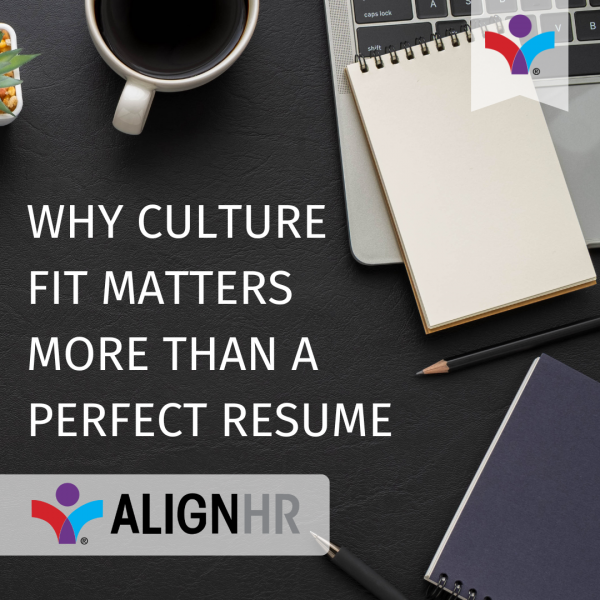
Hiring for skills alone might seem like the fastest way to fill a position, but it often leads to frustration—for the employee, the team, and the leadership. In small businesses especially, where every hire has a major impact, culture fit often matters even more than technical abilities.
Zach Abraham, Principal and CEO of AlignHR, put it simply in the latest episode of Beyond Compliance: “If you hire someone who’s out of sync with your team values or behavior expectations, it can drag down the entire organization. Even if they have the perfect resume, the wrong fit is costly.”
Hiring with culture in mind isn't just about “getting along.” It’s about ensuring that every employee contributes to the overall mission, vision, and health of the company.
When reviewing candidates, it’s easy to focus heavily on:
Those things matter—but they don’t paint the full picture. A resume can tell you what someone has done. It can’t always tell you:
Zach shared, “In a small organization, if you have even one person who’s out of sync, you feel it everywhere. It’s not like a big company where it can get lost. It can affect the entire team dynamic.”
Large companies sometimes survive bad hires more easily because they have layers of management and larger teams. Small businesses don't have that buffer.
When you hire someone who doesn’t fit:
Hiring with culture in mind strengthens teamwork, increases employee engagement, and helps everyone stay focused on shared goals.
Culture fit doesn’t mean hiring people who look, think, or act exactly alike.
It means finding people who align with your company's:
When someone resonates with those elements, they’ll naturally adapt to the technical skills they need—or will be more motivated to learn.
As Zach said, “You always hire on behavior and attitude first. You can train the rest if they’re willing and able.”
Here are some ways to make sure you’re considering culture at every stage of the hiring process:
If you haven’t already, write down your company’s mission, vision, and core values. Share them internally and externally. Your candidates can’t align with a culture they don’t understand.
When posting jobs, talk about your values and work style—not just the technical requirements. Candidates who resonate with your culture will naturally be more excited to apply.
Move beyond skills questions. Ask questions like:
Whenever possible, let candidates meet future coworkers. As Zach recommends, “Encourage them to have informal conversations with multiple team members. You’ll learn a lot about potential fit from those interactions.”
When you’re short-staffed, it’s tempting to hire the first technically qualified candidate. But rushing often leads to misalignment. Taking a little extra time upfront can save months of frustration later.
Technical skills are teachable. Attitude, trust, collaboration, and belief in your mission are much harder to instill after someone joins.
Hiring for culture fit doesn't mean lowering your standards. It means raising your standards in the areas that actually sustain long-term growth.
Zach captured it well: “Good people beget good people. If you start with the right foundation, your team will naturally grow stronger over time.”
Looking for help building a team that fits your mission and values? Learn how AlignHR supports small businesses through smart, strategic hiring.
This blog is based on insights from Episode 2 of Beyond Compliance, featuring Zach Abraham and Luke Hladek. Dive deeper into how small businesses can build strong, values-driven teams by listening below—and make sure to subscribe for future episodes.